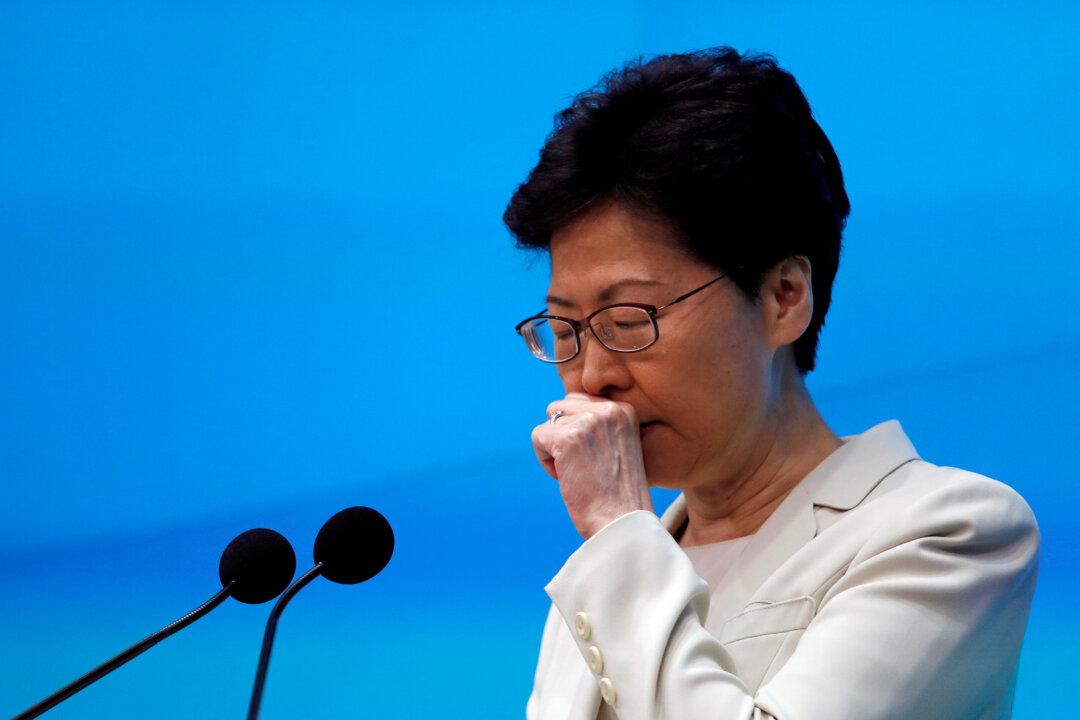Breaking ten days of silence since making a public apology last week, Hong Kong leader Carrie Lam resurfaced on June 28 to meet with pro-Beijing politicians.
The embattled chief executive on Thursday held a private meeting with a dozen community leaders from the Friends of Hong Kong Association, a pro-Beijing group, after an earlier meeting with four representatives from the police union, Hong Kong Economic Times (HKET) reported on June 28.





